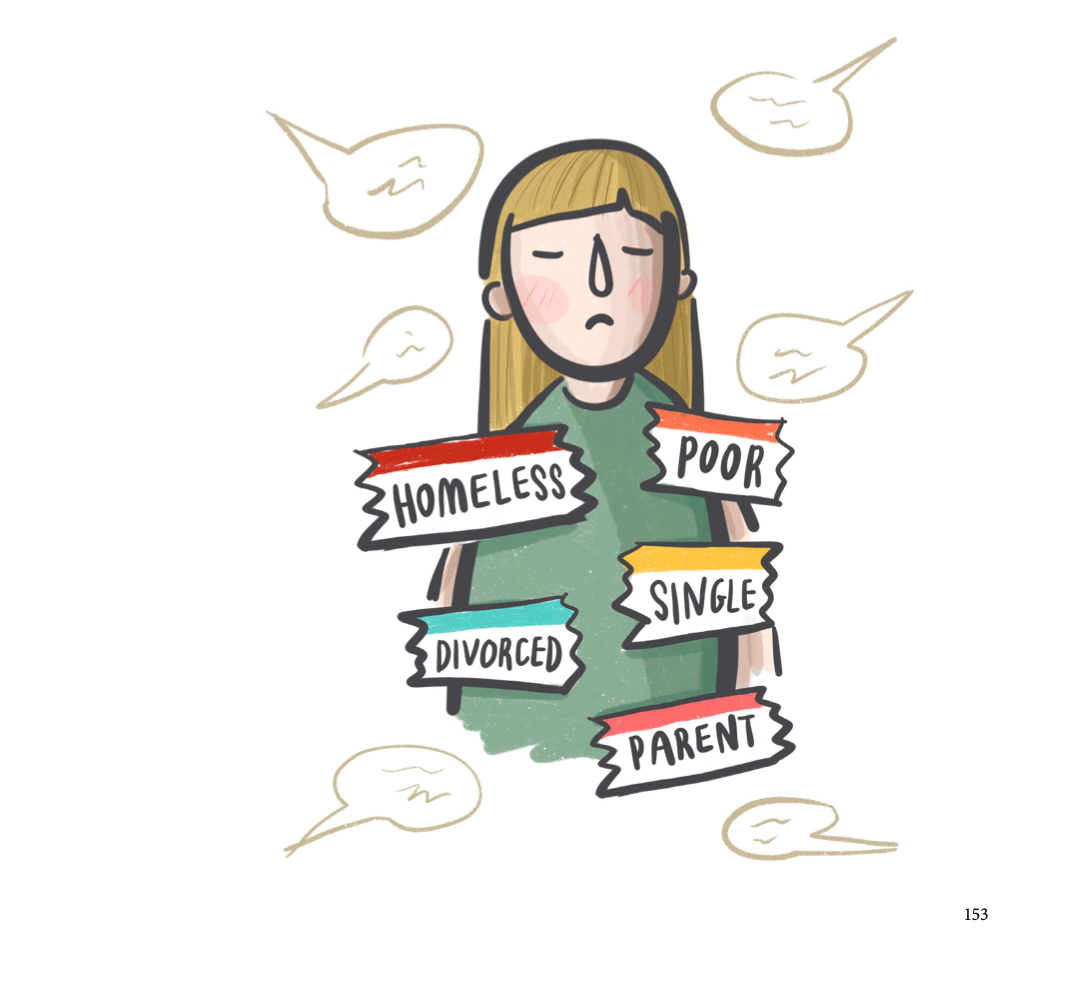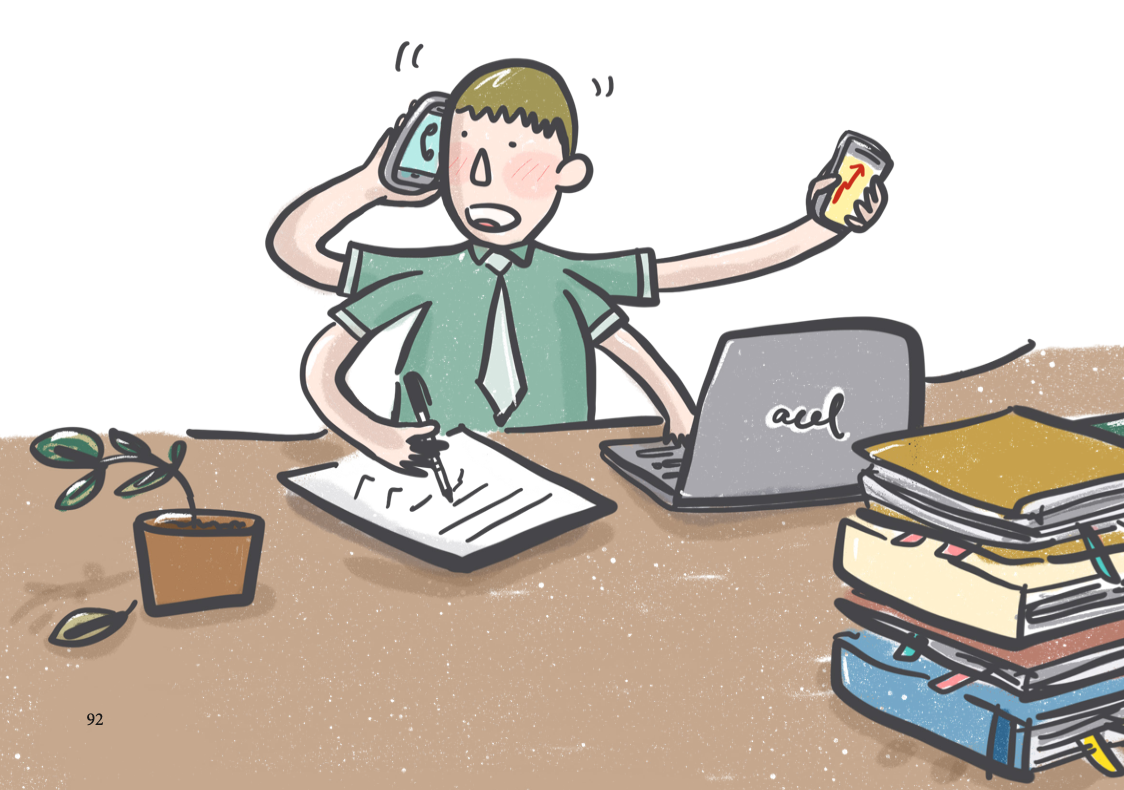I confess. I’m no expert on social work. I’ve been complained about many times from clients. In my last placement, my supervisor wanted to fail me.
Twice.
You may feel cautious reading this. But those experiences in social work, however much of a ‘failure’ it was, taught me what not to do, and how the small, micro skills in social work could really make a difference between a happy client, and a not so happy one.
Here are some principles to hold, before we go into the details of micro skills.

Clients are customers, too
When I used to work with other social work colleagues, I saw that the most effective ones were those who made clients feel like customers. They had great social work skills, but they also had great customer service skills.
They made clients feel like they were respected as full fee paying customers. When clients came in, they would offer a bottle of water. When they walked into the room, they would ask if the air-conditioning was to their liking. When they arranged an appointment, there would be smiling emojis.
Sometimes, when clients aren’t paying, we may tend to treat them brusquely. As one client once told me when I asked her if the food we gave her was to her liking,
Beggars can’t be choosers.
I beg to differ.
Whilst clients may not be paying for the service, a great customer experience helps them to rebuild their sense of dignity and regain their sense of identity. Clients have gone through a lot before walking through your doors. They may stare longingly at restaurants, knowing that they need to budget and save on their expenses.
Or they may look at items in shops and find themselves unable to afford it.
The first time they walk into your centre, may be the first time they are treated well and accepted for who they are, rather than for the monies in their bank accounts.
Clients aren’t just people who use your service for free. They are customers too.
A simple adage?
Treat them as you would like to be treated yourself.
Clients see the small things
Small things matter. Much more than we would expect.
Once, a client shared about how he brought his child to the preschool. Despite calling multiple times to the teachers inside, and trying to catch their attention by waving his hands, they did not see him. He felt that they did not want to see him.
Another client shared about how he was upset when a boss looked at him ‘funny’.
The raise of an eyebrow. The tightening of a fist. The flash of a look of irritation, even if for just a moment, registers in the minds of clients.
They see more than we expect them to.
It’s not about overthinking your actions. But it’s about being sensitive to how you speak, and being willing to apologise when you feel you have unwittingly slighted your client.

The physical affects the psychological
When I used to work in a hostel for the homeless in the U.K., security to the staff’s office was very tight. We would need keys to enter, and there would be a small, rounded glass window which clients would look into to get our attention.
Because we were often busy, some of these clients would end up banging furiously on the glass to get our attention.
One social worker, pointed out about how the physical obstruction of the glass affected their psyche, making them feel locked up.
It was then that I realised how the physical plastic boards that we put up for COVID prevention at reception counters affected how clients connected with the receptionist.
It may sound like a small thing. But think of your experience pre, and post-COVID. Who could have ever thought that wearing a mask across our face could hinder our sense of community? Don’t you miss the times when you could see a colleague’s smile? Now, all you can see is the person’s eyes.
Knowing this, the micro skills are as much a physical skill, as it is a psychological skill. Very often, we see micro skills such as:
- Empathy
- Attending
- Unconditional acceptance
But what’s in these skills? What are the physical things you do to ensure that you convey empathy?
As Ivey explains, it is necessary for us to break down skills into the smaller, component parts.
The skill of attending is broken down into micro-skills of making eye contact, vocal qualities used, verbal tracking and use of body language
Ivey, A. E., Ivey, M. B., Zalaquett, C. P., & Quirk, K. (2011). Essentials of intentional interviewing: Counseling in a multicultural world (2nd ed.). Brooks/Cole Publishing Company.
So what are micro skills?
Knowing these principles, let’s first explore what micro skills are.
While skills tend to represent the doing of practice, micro-skills reflect the bodily being or embodied knowing of practice.
An easier way of understanding this is making physical the psychological skills of social work.

Here are 5 micro skills which can help.
Small talk
In ‘Better’, Atul Gawande explores the concepts that helped him improve as a doctor. One of those was the ability to make small talk.
Small talk helped him to see the person beneath the patient.
As social workers, you’re undoubtedly busy. And there are many times when you would want to get into your agenda quickly. There’s no time! We need to cut to the chase, and get the work done!
After all, there’s so much case notes to finish, case notes to upload, and even more administrative work to settle. Who’s got time for small talk?
But this busyness can sometimes affect the therapeutic alliance you have with your clients.

Making time for small talk can help your client to ease into the potentially difficult conversation he will have with you. It builds a tiny on-ramp that allows you to make the client more comfortable, slowly ramping up into the difficult issues you want to discuss with him.
How do you do this?
Some useful topics can include:
- Travel
- Where are you traveling to?
- Have you traveled anywhere recently?
- Are you planning to travel?
- Food
- What did you have for lunch?
- What are you planning to have for dinner?
- What’s your favourite place to eat?
- Hobbies
- Oh I see that you’re wearing a Chelsea shirt! Do you like soccer?
- What are you planning this weekend?
Hosting
When you bring your client over to your centre, I would argue that you’re not a social worker first.
You’re a host.
Why? You’ve invited them to have a conversation with you at a safe place. But for them to feel psychologically safe, you need to help them build a better sense of home.
Simple things like asking them if they would like a hot or cold drink can help.
Living in the U.K., this was the most basic courtesy anyone extended whenever I visited a place. I used to think this was a waste of time. But over time, I began to see how the act of having a drink could help the person to feel more at home with a drink they enjoyed and wanted, whilst also calming the person down.
Ensuring that they are physically comfortable is next. Asking them if the temperature of the room is to their liking can help them to feel greater control over their environment.
You’re bringing someone to a place they have never seen before, to talk about something they may have never shared before. Attending to their basic needs can help to smoothen the conversation.
Vocal tonality
Remember the last time you had a really good conversation with a customer service officer? What did she specifically do that helped you to calm down, despite knowing that your phone was out of order, and that you were very angry at waiting 32 minutes to speak to someone?

Here are the 3 elements.
Pace
How fast do you speak with your client? Speeding up unnecessarily can cause anxiety for your client.
At the same time, speaking too slowly can result in your client falling asleep, and feeling that you’re not moving fast enough.
One way to overcome this is to have pacing variety. During some aspects, speed up, but during other times, slow down.
Mirror your client’s speaking pace.
Tone
Do you sound harsh over the phone? Often when we can’t see the person on the other end, we may speak in a harsher tone. One way is to have a picture of someone you love in front of you when you speak, so that you’re able to speak in a softer, and gentler way.
Volume
For the times when your client is feeling angsty and starts raising his volume, raising yours isn’t going to solve the problem. Trying to make yourself heard over your client is not going to be effective.
Why not try softening your volume so that the client actually has to lean in to listen to what you’re saying?
This can serve as a complete surprise to your client. When he’s angry, he may expect a corresponding response from you. But surprising him with a completely contrarian response may invite him to trust you more.
If you’re not too sure about the flaws in your voice now, one way to assess how your vocal quality is to record a conversation you have with your client.
Texting
How do you message your client? Is it in a factual, transactional manner, or one that’s relational?

My professor used to tell me,
You can be friendly without being a friend.
As a social worker, you’re not your client’s friend. But you can be friendly.
I’m not asking you to share your life with your client. That would be too much. But it can be helpful, especially with younger clients who are more comfortable with messaging, to add in an occasional emoji to encourage them to respond.
The point of texting is to hopefully have your client to come in for a session with you, whilst also feeling connected to support that he or she can access when they are not in a formal setting.
That can come through messages that are warm and approachable.
Eye contact
When I first started as a social work student, I remember being so afraid that I would forget what the client said that I would desperately scribble whilst the client was talking.
As my supervisor was observing me once, she gave me this wise advice,
The assessment is a guide, and not a straitjacket.
Use the conversation as the assessment, rather than the case recordings.
We miss so much when we focus more on an accurate transcription of what the client has said, rather than trying to fully tune into the client through the conversation.
Why not take time to drop your notepad, and just listen to the client?
The art of conversation is not easy, and it demands that we are fully in tune, rather than splitting our attention between conversing, and recording. The client can sense that you’re not fully in the conversation.
Conversations which tend to be better are ones where you are:
- Mirroring the client, repeating what he has just said
- Providing verbal anchors, latching onto significant things that the client has pointed out, and paraphrasing them to the client
- Reframing what the client has said
- Asking, “Do I hear you correctly when you say…?”
- Making no assumptions, by saying, “Correct me if I’m wrong, but it seems…”
The devil is in the details
I remember the first time I saw the power of small things, and how they could really affect therapeutic outcomes.
I had been working with two youths who were regularly playing truant. When teachers visited them, they would not answer the door, and would cry out,
NOBODY AT HOME!!!
Clearly someone was.
One evening, I asked,
Why don’t you go to school?
The girl pauses,
It’s very cold in the morning.
In my mind, I think, “This is Singapore, how cold can it get?”
Then she continues.
I don’t have hot water to bathe with in the morning.
Just then her brother walks out of his room, heading down. I ask where he’s going.
Oh, to McDonald’s to get free WIFI.
Hot water. Wifi. Things that I took for granted, but which clearly affected their motivation to go to school.
If you take nothing away, I hope you take away this. That the small things matter, more than we ever care to imagine.
Thank you for this post, it was very helpful! I am reminded and inspired that the small things do matter indeed. Thank you!
Cheers,
David
This is very insightful. I have few ideas here that I can adopt to complete my Critical reflective log for ASYE. Thank you for sharing.
Best regards,
Joy